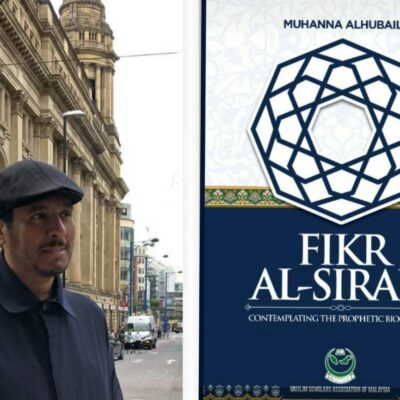By Mohanna al-Hubail
Alex Haley has succeeded in connecting the reader to the spirit of Malcolm X the revolutionary, and the several stages of his life through The Autobiography of Malcolm X (As Told To Alex Haley). Malcolm used to consider his description at the American press as right, but only according to his own interpretation in regard to his struggle.It was not according to the depiction of the press tailored to overthrow Malcolm, describing him as “The most outrageous red Negro” in America. Whoever reads his biography by Haley, revised by Malcolm himself before he was killed and confirmed to Haley that he was anticipating death at any moment and would not see the book published, would recognise the amount of distortion that happened to Malcolm after his death, not only during his lifetime. It is a fact that cannot be eased or even ignored.
This fact strongly reveals itself for the independent research. It comes out very clear to remind us that the world under Western imperialism and the American imperialism in particular is still counterfeiting history, and erasing the values of struggle and the sacrifices of pioneers. Hence, we find a clear link between the ideas of Malcolm X, Edward Said and Ali Ezzat Begovic in their interest and determination to emphasise and liberate the idea that the case of the global south and east with the Western world is not to define the values of social justice, and the development of individuals and their liberties, but in creating proper balance and dropping such a case.
This is an important indication of the role of the American press against the ‘most angry African American’ and the role of the Western press today against the angry southerners standing for the rights of their people who are crushed under the yoke of tyranny and the heat of such racist policies.
The issue is not a recurring gust of rage, it is rather a return to a decisive intellectual fact that reflects on today’s horrendous political and humanitarian reality. The issue is that the battle of progress and liberty against religious and cultural backwardness and the ailing spirit of the southern societies is still suffering from a western interference rather than an internal inability. It is exactly what happened in the case of Malcolm’s struggle and his angry rebellious spirit, which used to come out in an inadequate violence at some of its expressions, against the patterns he encountered from Michigan to New York.
These common values are not concepts particular to Muslims, but Islam as ideas and ethics had a great role in the transformation of Malcolm’s life. In his biography, he swore as he was narrating the details of his journey throughout the nights of sex, drugs and theft that there was no ethical power on earth that could transform him into a different human being and cleanse him of all such debauchery but Islam.
Therefore, the link that gathers Said, Begovic, Haley and Malcolm is the huge lack of adequate balance within the Western cultural and political media lobbies. However, Malcolm recognised the need to correct his address against the white Westerners after the Haj (pilgrimage to Makkah) journey. Haley was writing about Malcolm as a rights activist for the common society even though he was not in complete agreement with it.
Said has also a different sphere from Malcolm, without abandoning the main idea, which is his search for the fairness of the value standards, detailed by Begovic. This idea remained with Malcolm as the idea of his life and struggle, and caused the trouble of linking him with some leaders of tyrannical history, in particular those who used to adopt the communist approach. He used to attack the hypocritical image of America in the Third World, and said that the ambassadors of Washington were fed up with such disgrace, except for one of them, whom he referred to positively. He was a white American who listened to Malcolm and had an intellectual dialogue with him. Malcolm responded to him and mentioned him in his records.
This issue, which is experienced by some strugglers, could be excused, especially at that time, so long as it was not used as a direct weapon by the struggling intellectual to incite a rights’ opposition against the tyrant. Such intellectual claims to be in enmity with America, and accordingly exhaust his people, deprive them of their rights and block their liberties in the name of this enmity.
The American press eventually united with Elijah Mohamed and worked hard on this before the assassination of Malcolm. Mohamed presented himself as a black prophet sent against the white. Consequently, they all judged Malcolm X as an extremist and the security organisation was strongly involved in the very details of this scene, according to many clues that appeared at Malcolm’s biography. Malcolm reported the attempt of his assassination to the police through his new society. His house was even burnt down before his assassination. However, all the details of the crime scene, the statements of security officials, and the address of Elijah Mohamed after his assassination were all witness to the manipulation of the crime scene of his killing. It was sufficient to leave the scene for the extremists to finish up the final chapter of the process.
One of the most important ideas of Malcolm’s biography is his self-criticism of his racist approach to the Western whites, which he had denounced, but the press did not pay attention to this and continued to focus on his anger. He used to respond to them stressing that the American racism was the inciter of his rage and he did not hate the white man, whom he had not seen any difference with while performing Haj.
Hence, he came to know that the issue is not colour or the Western race in itself, but rather the culture produced in the name of the supremacy of the Western race, impacting the world culture and social history. Such culture leads people to fall victims to race civilization supremacy wars and interests.
The moment of Malcolm’s assassination came as he was reaching the peak of revising his ideas, which highly won the sympathy, compassion and enthusiasm of the white American and English young people for his lectures. Eventually, the divided south and north worlds in America started to unite over the values of human justice. Ultimately, Marin Luther King heard about Malcolm from his wife. King heard about his sincere feelings and his support to him.
In fact, Malcolm’s firmness in promoting the rights of African Americans paved the way for the positive treatment of King. Innovation and humanitarian thoughts were flowing within the spirit of Malcolm, stressing that the revival of the Islamic human rights within him was not an ideological recovery that classify people according to their religions, but a recovery of dignity, and united partnership for all the people suffering on earth for the sake of social justice, and equal human rights, yet at this particular moment Malcolm X was assassinated.
* Translated from the original in Arabic by Gulf Times




